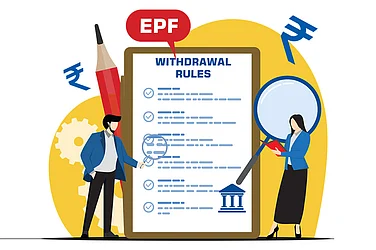I was reading about a woman in the US who began to panic at the fact that she had zilch savings even though she was in her 30s. She was earning rather well and had no dependents. She had only one credit card which she used extensively, but always ensured that she cleared it at the end of every billing cycle. By doing so, she avoided debt on the card. Clearly, a lot was in her favour—her circumstances and her behaviour. So why were her savings non-existent?
She approached a financial advisor to help figure it out. He told her that the only thing she needed to do was to figure out where her money was going, and after she got that information, they would take it further.
She sought the help of ChatGPT. I have no idea how she exported the data set of her expenses to ChatGPT. However, her prompts were explicit. For instance, one of the prompts was: “Column B is the name of the vendor. Group all expenses by vendor and show me which ones I spent the most money with.” She also got the data sorted according to spending categories.
What showed up was the horrendous amount spent on body care, makeup, and trips to the salon and spa. She went back to the advisor who had a long chat with her. She confessed that she was body shamed a lot when growing up, and it was her weak point. These expenditures were necessary to boost her confidence and make her feel that she was looking good all the time. She just never realised how much her insecurities were costing her monetarily.
It is evident that artificial intelligence (AI), particularly Generative AI (GenAI), has become the lynchpin of transformative change in money management. However, let me quickly add that I am not blindly endorsing for you to deploy AI to understand your finances. In fact, it is a reminder that it cannot be used in exclusion to other avenues.
AI is extremely effective at collecting, sorting, categorising, and analysing your financial data. By employing algorithms and data analysis, it finds trends and statistical relationships. It takes the raw data and, in minutes, churns out insights with precision and clarity. You don’t have to be a spreadsheet wizard. Neither do you have to waste hours poring over data. It is convenient, factual, and brutally objective. It is a great partner in your money dealings. In fact, there are plenty of financial advisors who have incorporated AI into their workflows to increase efficiency.
AI is solid, sensible and a factual tool. Use it accordingly. But don’t let it have the final word on your financial decisions
Having said that, money is never only about the math. It is never only about the numbers.
Let me cite a personal example. Years ago, I was going through a tough emotional period. At that time, I would do a lot of my writing and work at a Starbucks outlet. This was certainly not a “need”. It would have been much cheaper and logical to just sit at home and make my coffee. Coffees at Starbucks are not cheap. To add to the bill, I would sometimes pick up a snack to munch on. Then there was the expense of travel. AI would be quick to point out how much of my expenditure was wasted on this.
However, me going to that coffee shop had nothing to do with coffee. I loved the ambience, the music playing in the background and the incessant chatter. I enjoyed talking to strangers and interacting with the staff. I made a few friends there. Occasionally, I would catch up with a friend over coffee. I just cherished the independence and the fact that I could afford to work in an environment other than office and home. I enjoyed the break in monotony that it offered.
My need was not one of caffeine, it was the need for social engagement that I needed during that phase in life. So, if I stuck to AI telling me that this was a leakage in my expenses, I might have succumbed, but it would not have helped me emotionally.
It is not just looking at where the money is going. During the pandemic in 2020, when stock markets across the world plummeted, a pilot I knew really panicked and wanted to sell all his investments. Airlines were hit and he was not even sure of having a job in the immediate future. It was his financial advisor who had numerous chats with him over Zoom (since we could not travel for personal meetings). He told him this is a knee-jerk reaction; avoid selling in such a market, and just wait and watch how the world adapts. He informed him that he had sufficient money in his Emergency Fund to tide him over for a while.
Yes, the landscape is shifting, but I can confidently say that human-centric advice and assurance cannot be replaced by AI.
A few years ago, a financial advisor, on a social platform, invited people to ask questions. A young man presented his case. His fiancée doesn’t want to save and wants to live it up. On the other hand, he wants to save for the future, but ends up giving in to her. How must he break this impasse?
The advisor asked him if he knew why his fiancée behaved this way. He explained how she stood by him when he had nothing, and now when both are doing well, she felt that they could afford to live the life they were denied earlier. So why not?
The advisor completely refrained from judgement, and gently prodded him on, encouraged him to approach the conversation with his fiancée in a non-combative tone and use collaborative words. She told him how they need to sit together and envisage a future together. How each would have to honestly say how the other’s attitude made them feel. She told him to constantly celebrate their love for each other, and what each needs to do to respect the other.
No AI Could Have Tackled It The Way This Expert Did
If you want to buy a home, the spreadsheet will tell you the equated monthly instalment (EMI) and the downpayment you can afford. But do you really like the idea of owning a home? Do you want to own one in the city you are currently in? What is the purpose of you purchasing a home against renting one? Is it the need for security or the need to belong someplace? My point is that there is much more to money than a spreadsheet or an algorithm.
AI is solid, sensible and a factual tool. Use it accordingly. But don’t let it have the final word on your financial decisions. Use it as a starting point to dig deeper. You can do so on your own, with a financial advisor, with a family member or with a trusted friend. But don’t eliminate the human touch.
Why AI Cannot Eliminate The Human Factor
AI analyses the numbers. But the numbers are often reflective of a deeper malaise.
Money should never be viewed in isolation. It must be acknowledged along with the emotional need it meets.
AI provides generic views. Good advice considers your overall financial situation, your goals, your dreams, your fears, and your appetite for risk. This is where the human element is so centric to financial advice.
AI is brutally objective, which is good. That is why a subjective viewpoint is needed to provide the balance. Human nature is complex, especially when it comes to money.













